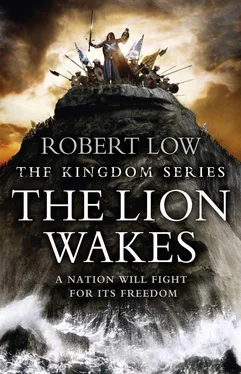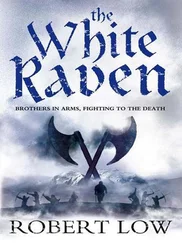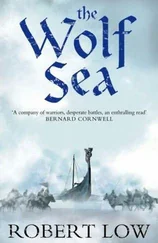Robert Low - The Lion Wakes
Здесь есть возможность читать онлайн «Robert Low - The Lion Wakes» — ознакомительный отрывок электронной книги совершенно бесплатно, а после прочтения отрывка купить полную версию. В некоторых случаях можно слушать аудио, скачать через торрент в формате fb2 и присутствует краткое содержание. Жанр: Исторические приключения, на английском языке. Описание произведения, (предисловие) а так же отзывы посетителей доступны на портале библиотеки ЛибКат.
- Название:The Lion Wakes
- Автор:
- Жанр:
- Год:неизвестен
- ISBN:нет данных
- Рейтинг книги:4 / 5. Голосов: 1
-
Избранное:Добавить в избранное
- Отзывы:
-
Ваша оценка:
- 80
- 1
- 2
- 3
- 4
- 5
The Lion Wakes: краткое содержание, описание и аннотация
Предлагаем к чтению аннотацию, описание, краткое содержание или предисловие (зависит от того, что написал сам автор книги «The Lion Wakes»). Если вы не нашли необходимую информацию о книге — напишите в комментариях, мы постараемся отыскать её.
The Lion Wakes — читать онлайн ознакомительный отрывок
Ниже представлен текст книги, разбитый по страницам. Система сохранения места последней прочитанной страницы, позволяет с удобством читать онлайн бесплатно книгу «The Lion Wakes», без необходимости каждый раз заново искать на чём Вы остановились. Поставьте закладку, и сможете в любой момент перейти на страницу, на которой закончили чтение.
Интервал:
Закладка:
Sim and Kirkpatrick, their breath mingling as they struggled, shoved pry bars into the grooves of the flagstone as Hal spoke.
‘Not an original mason’s mark,’ Hal said, speaking in rapid French, spitting the words out as if they burned him. ‘Gozelo was not that imaginative and thought to find a good Christian symbol of this land, to suit the tastes of his customers. He took the fish mark from the same place the makers of wee holy medals took it and for the same reason – to impress and because it is simple to make.’
He held up the medallion.
‘Taken from the Chalice Well in Glastonbury,’ he said as they peered at it. ‘See – the circumference of one circle goes through the centre of the other, identical circle. The bit in the middle is called the vesica piscis, which is the name of the mark.’
‘Bladder of the fish,’ Bruce translated thoughtfully. ‘Of course – I had forgotten the Chalice Well had it.’
There was a grating sound and the flagstone shifted, the two men sweating and panting to slide it with a long grinding slither, leaving a dark hole. The dank of it seemed to leach chill into Hal’s breath of relief.
‘The Holy fish symbol of Christians from the times of the Romans,’ Hal explained. ‘Lamprecht knows his business and told me the Holy nature of it – and it became clear why masons fancy the symbol. I am no tallyer, nor was he – but he knows his relic business well enough and the holy fish measures a ratio of width to height which is the square root of three – 265:153. The number 153 is the amount of fish Our Lord caused to be caught in a miracle, so there is the work of Heaven in it.’
‘Gospel of St John,’ Kirkpatrick breathed, astounding everyone with that knowledge, so that he blinked and bridled under the stares.
‘Two hundred and sixty-five fish-marked stones one way, a hundred and fifty-three the other and you have this,’ Hal said and held the torch over the hole, allowing the light to fall, golden as honey on the ancient sandstone snugged inside.
‘The Auld Templar’s secret place,’ Hal said, then glanced at Henry’s open-mouthed stare. ‘I hazard there are deeds and titles and Roslin secrets you will want from there, Henry -but first you will have to lift a heavy cover.’
‘The Stone,’ Bruce declared and gave a sharp bark of delight.
‘Not easily moved by two men – but done all the same,’ Kirkpatrick added and there was a pause as they saw how the Auld Templar and Roslin’s Steward, John Fenton, had struggled the Stone into the undercroft and hidden it.
‘Yon Gozelo was a clever man,’ Sim offered and glanced into the scowl of Kirkpatrick. ‘Just not very fast on his feet when it came to the bit.’
‘Aye, well,’ Bruce said and straightened. ‘Once you have taken what you need, Sir Henry, cover it up anew.’
He glanced round at the faces, all blood-dyed in the light, their breath like honeyed smoke.
‘Here we all are, then, party to the future of the Kingdom,’ he said. ‘In the absence of Bishop Wishart, I call upon us all to kneel and pray for the strength to hold to our resolve, to keep this secret until the time is right.’
This piety took even Kirkpatrick by surprise, but he dutifully sank to his knees. Bruce and Hal were the last to descend to the chill stones and looked at each other for a moment over the heads of the penitents. When the time is right, Hal echoed silently. The time for Bruce to make his move.
‘Welcome to your Kingdom,’ Hal said to him, savage and morose. ‘A bloodier place these days, my lord earl.’
The sun of Bruce’s smile was a bright uncaring knife that cut through Hal’s bitter grief and the Kingdom’s turmoil of pain.
‘Hectora quis nosset, si felix Troia fuisset? he answered, leonine with new dreams, and then added, in perfect English:
‘Who would know Hector if Troy had been happy?’
Author’s Note
In light of the collective nouns used in this book, I should add another which is particularly apt – a roguery of historians.
Unlike the earlier Dark Ages, there is no paucity of sources for the Scottish Wars of Independence, or the lives of Wallace and Bruce – what there is instead is a contradiction of times, dates, places and people, sometimes accidental, more often deliberate, from those being paid to enhance the reputation of their subjects.
That, coupled with the general attempts to revise history in favour of the various protagonists, has polished the personae of Edward I, Wallace and Bruce almost beyond recognition, while creating the impression that the war which culminated in the battle of Bannockburn was one of the freedom-loving Scots against the tyranny of England.
Ask any Scot in a pub and they will tell you chapter and verse on Bruce and on Wallace – they may even pour scorn on Mel Gibson and Braveheart, while admitting that they thoroughly enjoyed the movie, even the pseudo-kilts, face-painting (now almost de rigueur at any Scottish event) and waggling of bare arses at opponents.
The truth is harsher and more misted. Braveheart is a dubious interpretation of already dubious history, while relative sizes and composition and exact location of the armies at Stirling Brig and Falkirk is supposition and best-guess, depending on whom you read.
There is no doubt that the major protagonists were genuine heroic figures to a large body of opinion, in their own lifetimes and since. Equally, they were regarded as the blackest of terrorists to much of the rest of the population of both Scotland and England.
The legend had made Bruce into the hero king, liberator of Scotland, and any grey areas of his life have been airbrushed. Wallace, of course, is painted in easy black and white, as the giant with an anachronistic two-handed claymore, fighting to the very end and never giving in.
The truth – or what can be seen of it now – is different, but open to interpretation. This period was Scotland’s civil war more than anything, with the powerful Comyn, Buchans and Balliols against the determined Bruces for the possession of the Kingdom of Scots. Edward, the opportunist, tried to muscle in and soon realised his expensive mistake, for both sides used him unashamedly to further their own ends.
Nor is he the out-and-out villain, the ‘proud Edward sent hame to think again’ about trying his tyranny on the Scots; to the English he was one of the best kings they ever had and they feared – rightly – his passing, knowing the son was not the father.
I have tried to give Bruce and Wallace and Edward I back their original lives, after a fashion, to show them against the backdrop of the times while also unveiling some of the people, great and small, fictional and historical, who struggled to live in that emerging Scotland.
There are those I have maligned, or used for my own ends. Isabel MacDuff, Countess of Buchan, for one. All that is known, for certain, is that she existed, was married to the Earl of Buchan and, at one crucial moment in history, deserted marriage and party to side with her husband’s enemies, by becoming the hereditary MacDuff, Crowner of Scottish kings, and helping to legitimise Bruce.
She suffered for it, being subsequently captured and imprisoned in a cage on the walls of Berwick. Her later life is debatable, the best theory being that she was huckled off to a nunnery, her husband, the earl, having died.
The rest is my intepretation and invention – even her age is a confusion of accounts; her marital status is based on the evidence of her turning her back on her husband in favour of the Bruce faction. That and her lack of children told me much about her personal relationship with Buchan. Her supposed love affair with Bruce is mentioned as a rumour in some sources, probably scurriously anti-Bruce propaganda; her love affair with Hal of Herdmanston is pure invention.
Читать дальшеИнтервал:
Закладка:
Похожие книги на «The Lion Wakes»
Представляем Вашему вниманию похожие книги на «The Lion Wakes» списком для выбора. Мы отобрали схожую по названию и смыслу литературу в надежде предоставить читателям больше вариантов отыскать новые, интересные, ещё непрочитанные произведения.
Обсуждение, отзывы о книге «The Lion Wakes» и просто собственные мнения читателей. Оставьте ваши комментарии, напишите, что Вы думаете о произведении, его смысле или главных героях. Укажите что конкретно понравилось, а что нет, и почему Вы так считаете.











